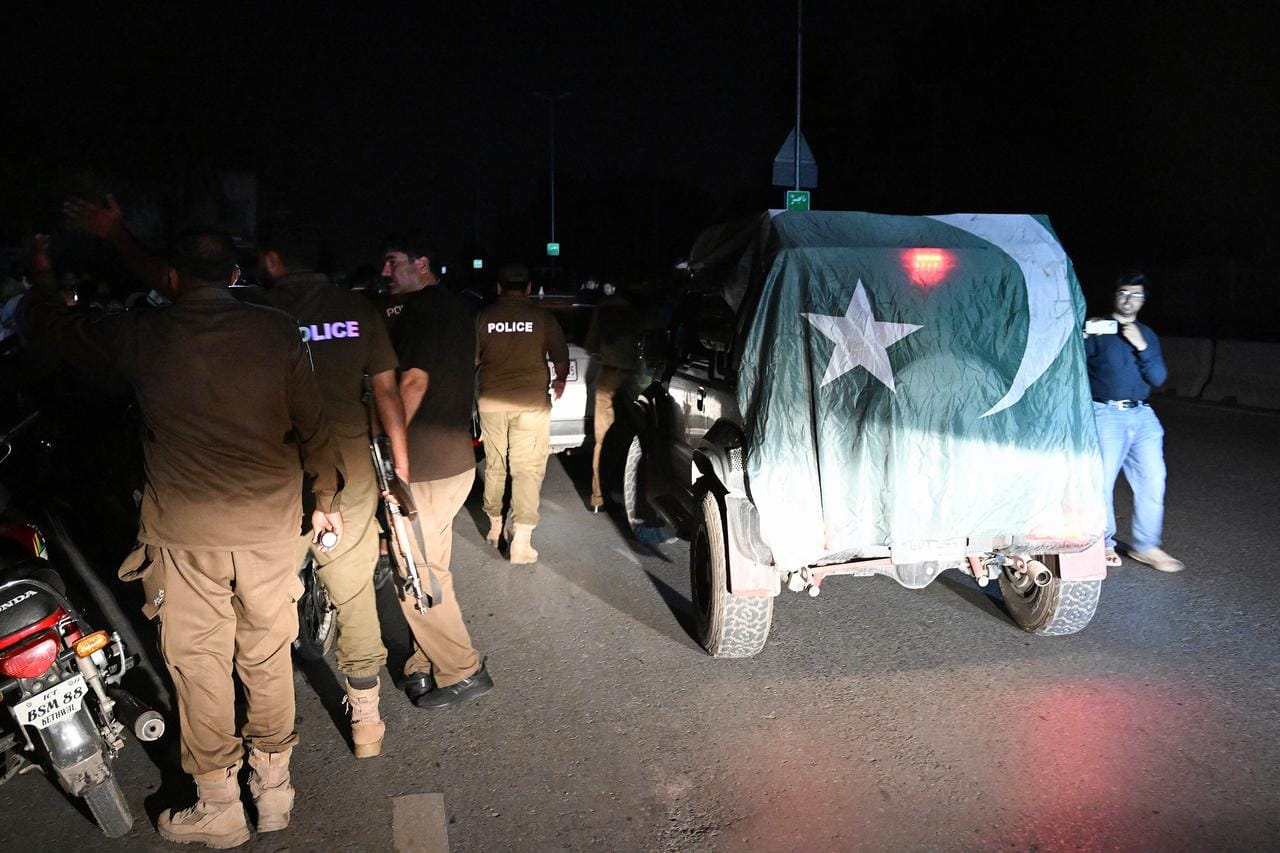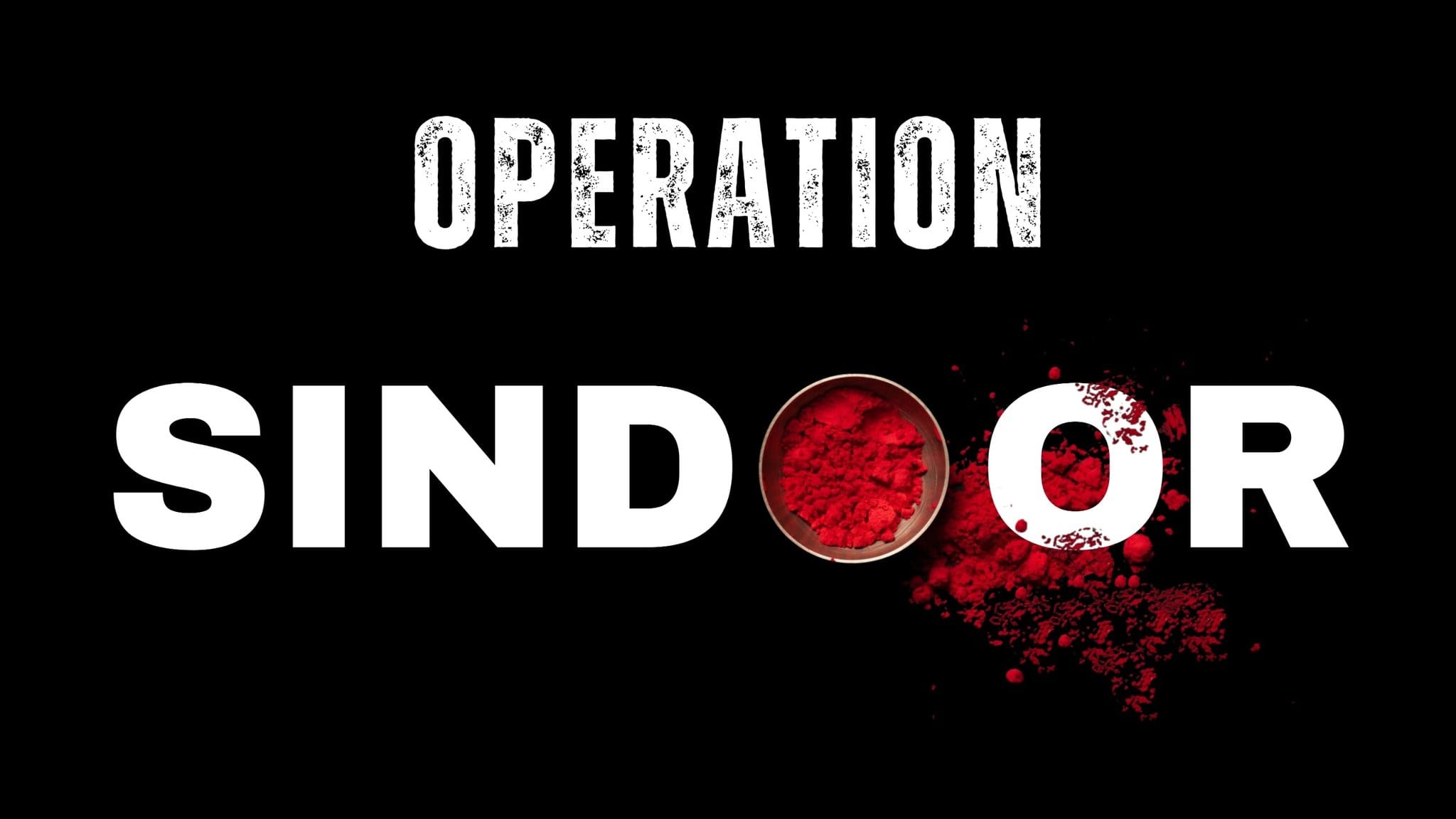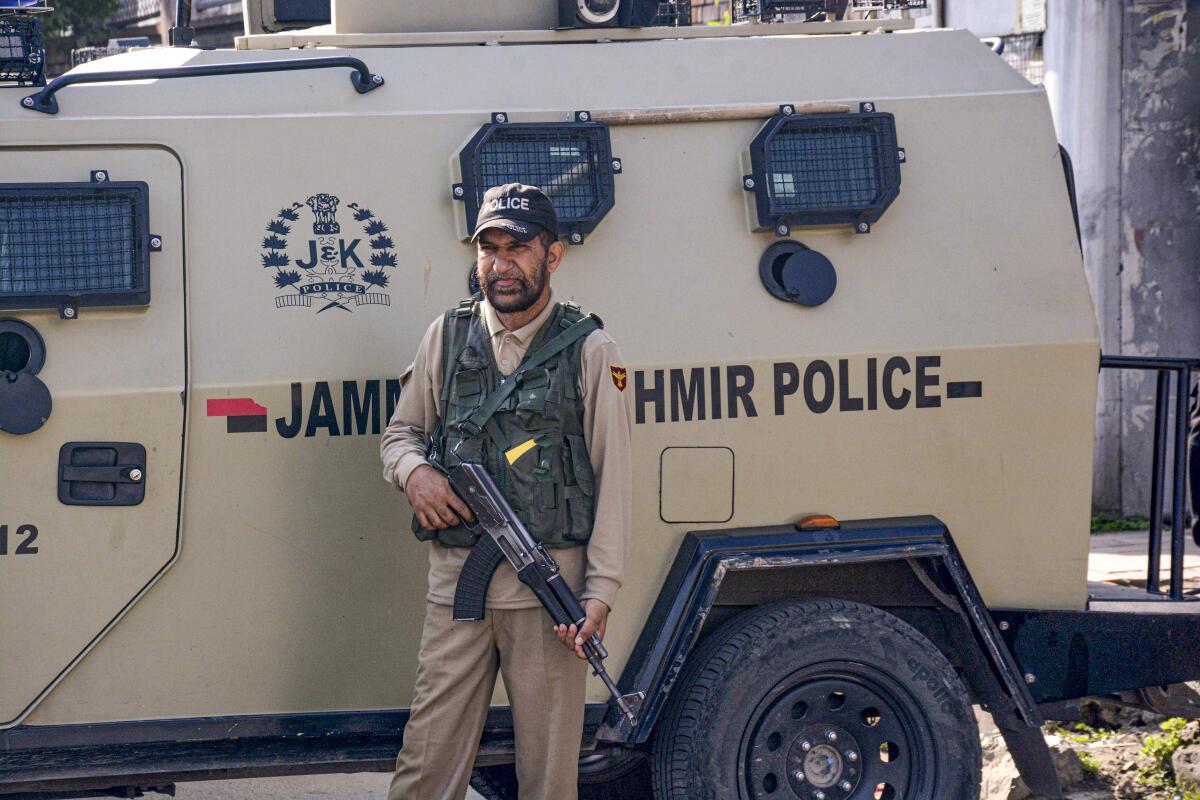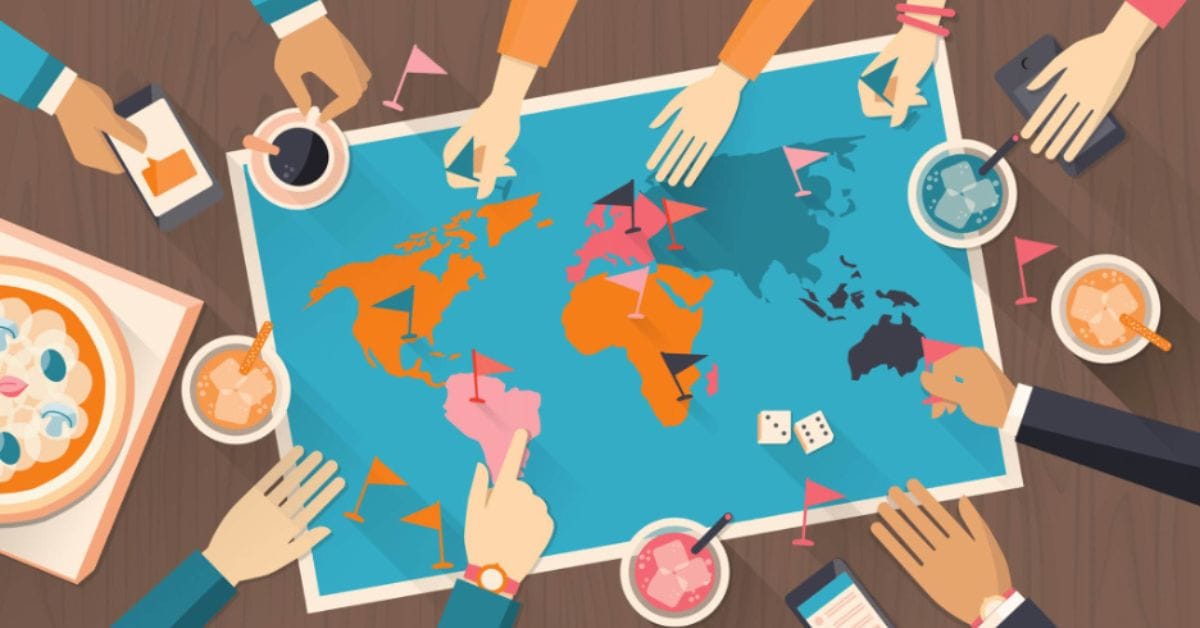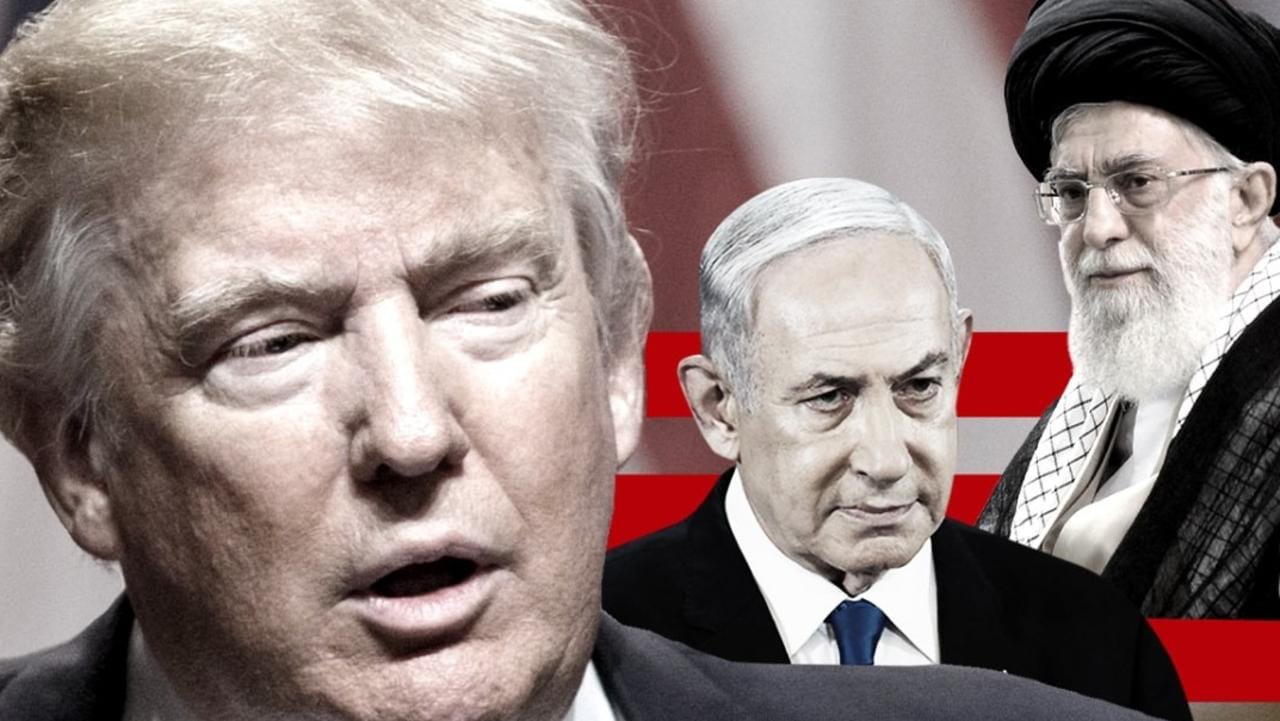The brutal massacre of 25 Hindu tourists in Pahalgam, Kashmir by The Resistance Front (TRF), an offshoot of Lashkar-e-Taiba (LeT), backed by Pakistan has sent shock waves across the world. Many global leaders have condemned this barbaric attack and have pledged their solidarity against Terrorism. This was the deadliest attack in Kashmir after the abrogation of Article 370 in 2019. As per the eyewitnesses, the terrorists opened fire on the tourists, rounded them up and asked for their religion. The tourists were even asked to recite the ‘Kalma’ and their pants were unzipped to identify Muslims.
Archives
Pakistan’s Operation Bunyan-un-Marsoos: Flexing Muscles to Hide Weak Knees
The operation, named after a Quranic term meaning “a solid structure,” targeted key Indian military installations, including the BrahMos missile storage facility in Beas and airbases in Udhampur and Pathankot. During the 3rd Ministry of External Affairs (MEA) briefing headed by foreign secretary Vikram Misri Read along with Colonel Sofiya Qureshi of the Indian Army, Wing Commander Vyomika Singh of the Indian Air Force, refuted Pakistan’s claim of attacking BrahMos storage site in Jammu.
Operation Sindoor: Justice is Served by the Indian Army
The attack on (mostly Hindu) tourists triggered a nation wide call for swift military action and the same was promptly delivered by the Indian Armed Forces during early hours on 7th May 2025, codenamed Operation Sindoor. This article is a general briefing about the India’s swift military operation against Pakistan followed by ongoing retaliatory attacks and ending with aftermath along with remarks containing public and international reactions.
2+2=5, the Mathematical Fallacy Distorting Truth through Politics
In George Orwell’s 1984, “2 + 2 = 5” is used a metaphor of power over truth i.e., if the government regime says something is true, you’re forced to believe it. In this commentary, I will explore this simple arithmetic falsehood that is often used metaphorically to represent government propaganda, symbolising the manipulation of truth across different periods of modern history, including the World Wars and contemporary times. I will also interpret this fallacy in the context of the Kashmir’s Pahalgam terror attack by Pakistan-backed militants.
Decoding the Pahalgam Terror Attack through an Intelligence Lens
While my previous article (commentary) discussed the potential link between these two attacks and how they fit into the ongoing proxy conflict between India and Pakistan — more specifically between their respective intelligence agencies, namely the Research and Analysis Wing (R&AW) and the Inter-Services Intelligence (ISI) — in this article, I argue that Pakistan’s military, particularly its Special Service Group (SSG) (Pakistan’s special forces), must be behind this attack, with planning support from the ISI-backed groups, Lashkar-e-Taiba (LeT) and The Resistance Front (TRF).
Is the Pahalgam Attack a Retaliation for the Jaffar Express Hijacking?
While it’s speculative, I find a connection with the unfortunate event of the targeted killing of Hindus by Islamic terrorists in Pahalgam yesterday, which fits within highly recognisable pattern of proxy conflicts and covert retaliatory attacks that have long characterised India-Pakistan dynamics especially around Kashmir and Balochistan. The connection forms in such a way that the Pahalgam attack, perpetrated by militants of the Pakistan-linked terror outfit The Resistance Front (TRF), is directly a predecessor to the Jaffar Express hijacking (11th March 2025), which was carried out by militants of the Balochistan Liberation Front (BLA), an outfit that Pakistan claims has links with India.
India and the FATF: Earning the Watchdog’s Praise
In a move, though not as relatively new as it is significant, the Financial Action Task Force (FATF) decided to place India in the “Regular Follow-Up” category, its highest rating category. For perspective, the FATF places the member countries into four groups: Regular follow-up, Enhanced follow-up, Grey list, and Black list (ordered from best to worst). With this, India joined the umbrella of France, Italy, and the UK. There is a comprehensive list of criteria which a member under evaluation needs to meet in order to find a place in the above list.
Trump’s Tariffs Impact on the Auto Sector and Global Supply Chains
Starting on March 4, President Trump’s significant tariffs will take effect. These tariffs include a 20% levy on Chinese imports, a substantial 25% tariff on products from its North American neighbours, Mexico and Canada, and an additional 10% tariff on Canadian oil and energy imports. This radical shift will have far-reaching implications for the U.S. automotive industry, potentially leading to increased costs for manufacturers and consumers and potentially reshaping global trade dynamics in the automotive sector. The auto industry is one of the most heavily affected by international trade policies in the US, with substantial volumes of finished vehicles and auto parts coming from Mexico and Canada.
The Vital Role of Cultural Diplomacy in International Relations
Apart from the traditional notion of hard power that involves quantifiable military and economic might, soft power as a facet of power has found political resonance in the realm of international relations in recent decades. Pioneered by Harvard scholar Joseph Nye, soft power is a non-coercive facet of power that has become increasingly important in maintaining hegemony in the world. Soft power entails the art of subtly influencing outcomes by shaping the preferences of other countries and actors outside your own country via the tactics of attraction, appeal, and persuasion.
Trump’s Middle East Gamble
Since President Donald Trump’s inauguration for his second term in January 2025, the geopolitical landscape in the Middle East has undergone profound changes. The administration’s renewed assertiveness has reignited longstanding disputes and strategic rivalries, most notably among Iran, Israel, and the United States. This article provides a comprehensive, practical analysis of these developments—detailing U.S. military engagements, Iran’s nuclear ambitions, Israel’s strategic recalculations, and the broader regional and international ramifications.

